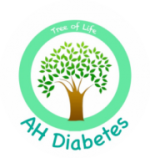Hydration – hype or truth?

written by Celia Innerarity, APD

Water is life! We have heard this many times. Is this true or just a whole lot of hype? As the days become hotter, adequate fluid intake is important because all our bodily functions take place in water and in fact approximately 70% of our bodies comprise of fluid. Sweat production is a survival mechanism so that we do not overheat, which puts us at higher risk of heat illnesses e.g. headaches, muscle spasms and in extreme circumstances, even death. Heat is removed from the body when beads of sweat on the skin evaporate, resulting in a loss of body fluid. Fluid replacement is necessary for:
- maintaining blood volume
- regulating body temperature
- muscle contraction to take place
- regulating bowels (think constipation)
What are some symptoms that can indicate we may be dehydrated?:
- if you are feeling thirsty
- having dark yellow and strong-smelling urine
- feeling dizzy, lightheaded or having headaches
- feeling tired and unable to concentrate
- a dry mouth, lips and eyes
peeing little, and fewer than 4 times a day

Very often we encounter people in clinic who do not like the taste of water and will opt for sugar sweetened options. This is important because weight management (especially waist circumference) is closely linked to diabetes management and in particular insulin resistance. Let’s have a look at how some of the popular beverages compare.
| Per 250 ml | Water | Iced Coffee (Average) | Soft drink (Average) | Sports Drink (Original) | Vitamin Water | Protein Water |
| Energy (kcal) | 0 | 204 | 110 | 62 | 47 * | 66 + |
| Carbohydrate (g) | 0 | 22.5 | 27 | 15 | 11 | < 1g |
| Sugar (g) | 0 | 22 | 27 | 15 | 11 | < 1g |
| Sodium (mg) | 0 | 108 | 27 | 128 | 3 | 20 |
| Potassium (mg) | 0 | – | 0 | 58 | – | 7 |
Note: Taken from Calorieking: * some can add up to 120 kcal per bottle + Fluids with artificial sweeteners
How do you know if you are drinking enough? Be mindful of your thirst sensation, as if you are already feeling thirsty, you are likely already dehydrated. Check the colour of your urine, it should be clear or the light yellow in colour. The darker it is, the more dehydrated you likely are. Coffee, not consumed in excess, and tea (without added sugar) contribute to fluid intake. Clearly many of these products are loaded with added sugar, which can be unhealthy when consumed in excess and promote weight gain.

Just a note about beverages with artificial sweeteners (e.g. diet soda), they can contain sugar alcohols that may result in gut upset for some (FODMAPS). Additionally, some studies have indicated that they can increase insulin resistance through stimulating the release of insulin. Watch this space for updates as more research is available.
Drinking less sugar sweetened beverages, like iced coffees and soft drinks, just makes more sense as a better health choice. Many have lost their excess weight by making that one change. There is increasing, solid scientific support to indicate it is a worthwhile long-term lifestyle change to make. Don’t just take our word for it, why not give it a go?
